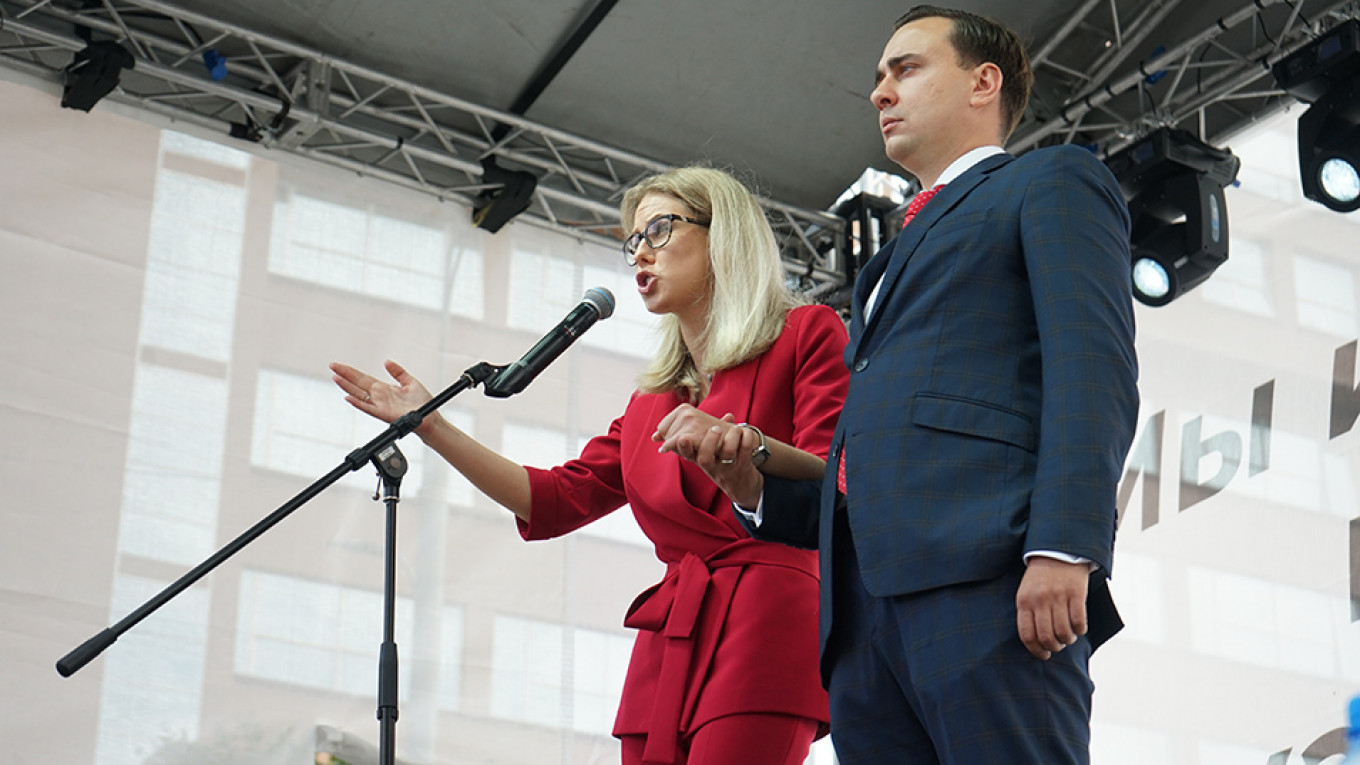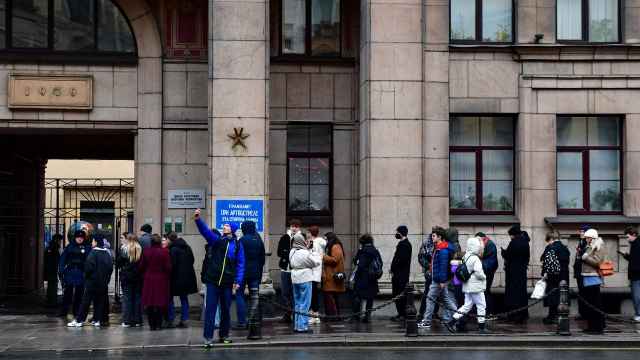Russian election officials have issued a final decision to block opposition candidate Lyubov Sobol from running for Moscow’s city council next month.
Russia’s Central Election Commission (CEC) said it had received 19 appeals from various candidates including Sobol against the Moscow commission’s decision to disqualify them from the ballot on Sept. 8. That decision, based on claims that the candidates had failed to collect enough genuine signatures to register, has led supporters of Sobol and other opposition candidates to stage weekly rallies over the past month.
The CEC issued a final decision on Wednesday denying Sobol’s appeal.
In a video statement, Sobol said the decision “proves that we had collected genuine signatures.”
“They spat in the faces of thousands of Muscovites who demand their political representation in the elections,” she said.
Sobol, who has been on hunger strike since July 13, emerged as the de facto leader of Moscow’s latest protest movement after several of her fellow candidates were jailed on charges of organizing unauthorized rallies. Opposition leader Alexei Navalny is also serving a 30-day sentence on the same charges. Her supporters have issued an online call for a fifth consecutive march in central Moscow this Saturday.
“There’s no other way to defend our rights than to take to the streets. We should show them that we’re here and we’re not afraid,” Sobol told viewers.
The CEC earlier on Wednesday had denied the appeal of three other opposition members, including jailed municipal deputy Dmitry Gudkov.
One other opposition candidate is expected to hear later on Wednesday whether the CEC will allow them to run.
On Thursday, the CEC plans to consider the appeals of four other candidates, including the jailed municipal council deputy Ilya Yashin and Yulia Galyamina, who was handed a 15-day arrest after serving almost 10 days.
A Message from The Moscow Times:
Dear readers,
We are facing unprecedented challenges. Russia's Prosecutor General's Office has designated The Moscow Times as an "undesirable" organization, criminalizing our work and putting our staff at risk of prosecution. This follows our earlier unjust labeling as a "foreign agent."
These actions are direct attempts to silence independent journalism in Russia. The authorities claim our work "discredits the decisions of the Russian leadership." We see things differently: we strive to provide accurate, unbiased reporting on Russia.
We, the journalists of The Moscow Times, refuse to be silenced. But to continue our work, we need your help.
Your support, no matter how small, makes a world of difference. If you can, please support us monthly starting from just $2. It's quick to set up, and every contribution makes a significant impact.
By supporting The Moscow Times, you're defending open, independent journalism in the face of repression. Thank you for standing with us.
Remind me later.






